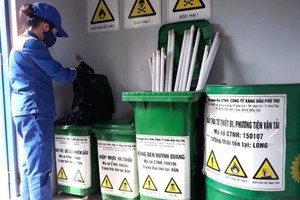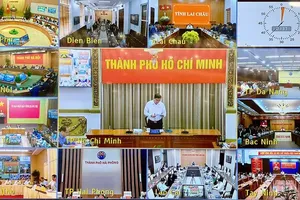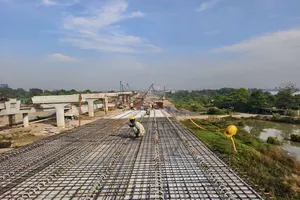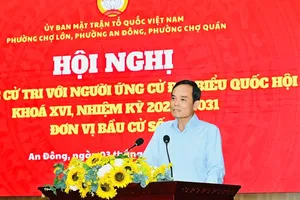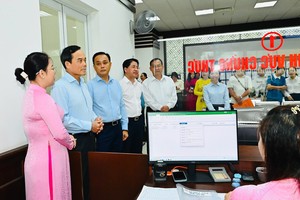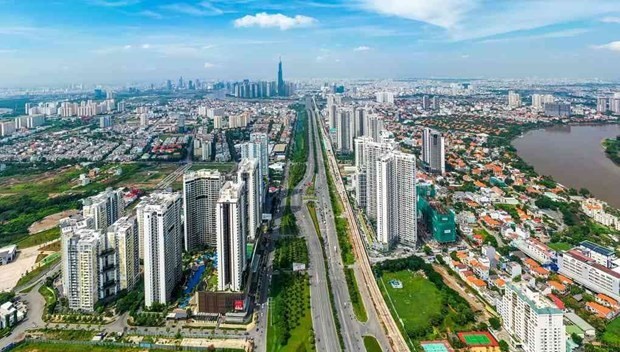 |
A corner of Ho Chi Minh City (Photo: VNA) |
It will contribute to speeding up the process towards zero net emissions by 2050.
However, to achieve this goal, there are a lot of problems and challenges that the southern largest economic hub must prioritize to address in the coming time, according to experts.
A detailed roadmap needed
Speaking at the Ho Chi Minh City (HCMC) Economic Forum 2023 held recently, Nguyen Duc Hien, Vice Chairman of the Party Central Committee’s Economic Commission, stressed that Ho Chi Minh City must quickly innovate and unify awareness of new growth drivers for promoting green growth.
The development of the digital economy, the circular economy, and green growth needs to be carried out methodically from planning, selection of fields, and allocation of resources, to improvement of awareness of people and businesses, he said.
In its strategic framework of green growth, the city needs to pioneer in developing several industries such as digital technology, biological industry, and high-tech industry, he said.
Hien also proposed the city make a plan to become a financial center in the region and the world and take the lead in developing and piloting new and green products, and become the region’s center in terms of science, technology, and innovation.
Economist Dr. Tran Du Lich advised Ho Chi Minh City to build a strategic framework to increase the use of renewable energy, solar energy, and offshore wind energy to reduce carbon emissions into the environment which currently accounts for 23 percent of the country’s proportion, and at the same time, reduce energy consumption in production per product unit, and save electricity.
Promoting the role of the private sector
Experts attending this year’s economic forum emphasized the role of people and businesses in the green transition process, considering this as the driving force and also an important resource that determines the success of the process of implementing green growth.
Deputy Minister of Natural Resources and Environment Le Cong Thanh suggested Ho Chi Minh City call on the domestic and foreign business communities to propose initiatives for green transformation activities.
Enterprises need to pioneer in the process of energy transition, and greenhouse gas emission reduction towards the goal of net zero emissions by 2050, he stated, adding that Vietnam is also in the process of establishing a domestic carbon market, which is an opportunity for businesses to trade and exchange carbon credits from energy transition and gas emission reduction activities.
Don Lam, Co-founder and CEO of VinaCapital Investment Fund said that the private sector is stepping up and playing a key role in implementing green transition, especially in the energy field.
However, there are still many difficulties and challenges to promote private resources in the green transformation process, requiring a more appropriate roadmap and legal framework for the coming time, he stressed.

